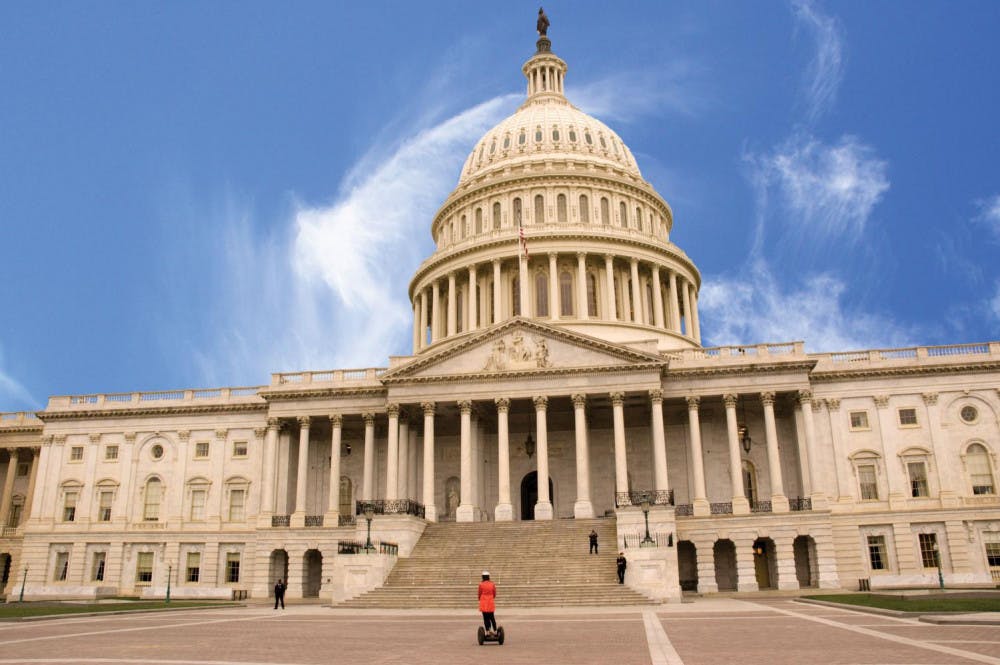The United States government closed in early January and it may do so again after the senate votes on the night of Feb. 8. Many people may not have really understood what the shutdown meant the first time or what to expect moving forward. This leads to the question: how does a government shutdown affect someone and more specifically, us?
On Jan. 19 the Senate ran out of time to pass a spending bill for the next year. As a result, the government shut down for three days before reopening on Jan. 23. The government will remain open for three weeks because of a bill signed by President Donald Trump to fund the government until Feb. 8. After that date passes, the Senate will have either voted on a new spending bill or the government will close once again.
Before explaining the impacts of a government that is closed for business, it may be worth figuring out what a government shutdown really is and why it happens.
A government shutdown is officially known as a “lapse in appropriations,” said Mick Mulvaney, director of the Office of Management and Budget in a interview with Bill Hemmer on America’s Newsroom.
This occurs any time the Senate needs to approve a spending bill and fails to do so by their appointed deadline. This leads to many government agencies closing and leaving employees without pay.
For example, with this most recent closure, the Smithsonian said that it would be able to open many of its locations on Jan. 22 due to the fact that it had funds from last year that could be used to keep the buildings going. However, it said that it would need to reassess opening for the following days.
This also has an affect on local places like the Ocmulgee National Monument in Macon, Georgia.
The Ocmulgee National Monument is classified as a national park and therefore affected by government spending. The monument will not be running on its normal schedule if the next budget doesn’t pass. The facilities will be closed, according to a statement released on Facebook. In this statement they shared some information from the National Park Service. They stated that many of the national parks cannot be fully staffed during the lapse in appropriations and several parks will not operate or allow visitors.
The shutdown does not affect everything, however. Services such as the U.S. Postal Service will still run regularly.
The Postal Service said on twitter that they will not be impacted by the closure because they make money “through the sale of our products and services and not by tax dollars” and are an independent organization.
So under a shutdown, you may not be able to visit national parks and museums as often as normal, if at all, but you will be able to send a birthday card to your best friend halfway across the country.
So why did the government shutdown this time? Depending on who you ask, the government shutdown was caused by the Democrats or the Republicans. Both sides have said that neither is working to make changes and even the president has made comments on the behavior of the Senate.
“Dems want a Shutdown in order to help diminish the great success of the Tax Cuts, and what they are doing for our booming economy,” President Trump said in a tweet.
Democratic Caucus Leader and New York Senator, Chuck Schumer had some words of his own online. He has said the Democrats want to protect the DACA program and he even tweeted recently that Trump is causing unity issues in the Senate.
“Getting people together -- that’s just about the opposite of what he’s done in these negotiations. That's why we're in this #TrumpShutdown,” Sen. Schumer tweeted.
It is clear that both sides blame each other, but it’s not necessarily fair to say that all Republicans or all Democrats are the reason that the government shutdown. This may be because the parties are not uniting behind a common goal and not all senators are content with the outcome of these disagreements.
South Carolina Senator Lindsey Graham said on twitter that he wants to find a resolution that won’t equal more shutdowns like one for the next few weeks. He also tweeted that Congress needs to stop the “cycle of dysfunction.”
According to ABC News, the shutdown ended because Democrats agreed to reopen the government if “the Senate Republican leader vows to work on a solution for dreamers.”
Late on Feb. 8, the Senate will vote again on a spending bill and if it passes the government will remain open and continue operating as usual. But if the bill does not pass, the U.S. government will shutdown again and the Americans will have put off any plans to visit the Smithsonian or Ocmulgee National Monument.
The recent government shutdown explained and what to expect if it happens again

The United States Capitol Building.




